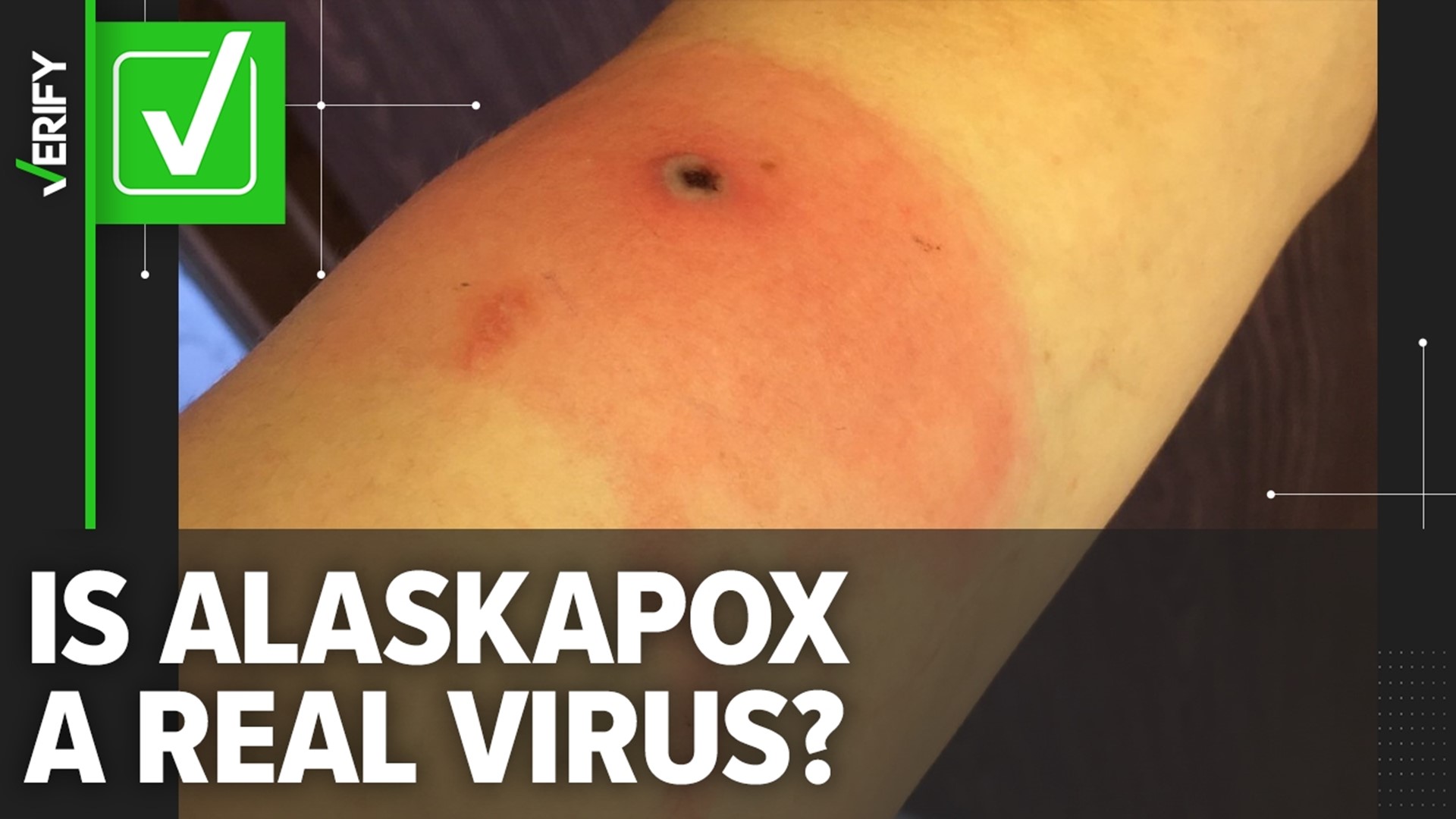In mid-February, multiple news reports claimed an elderly man recently died after being infected with a virus called Alaskapox, marking the first known fatal case of the virus.
According to Alaska public health officials, the man, who lived in the remote Kenai Peninsula, was hospitalized last November and died in late January. He was undergoing cancer treatment and had a weakened immune system because of the drugs, which may have contributed to the severity of his illness.
As the news circulated online, some people on social media questioned whether Alaskapox was actually a real virus. Recent online search trends show others are also wondering what Alaskapox is.
THE QUESTION
Is Alaskapox a real virus?
THE SOURCES
THE ANSWER
Yes, Alaskapox is a real virus.
WHAT WE FOUND
Alaskapox (AKPV) is an orthopoxvirus related to smallpox and mpox that was first identified in 2015 in a woman who lived near Fairbanks, Alaska, according to the Alaska Department of Health. Orthopoxviruses, like Alaskapox, are known to infect mammals, including humans, and can cause lesions, or pox, on the skin.
Since 2015, seven cases of Alaskapox have been reported to Alaska public health officials, but they say more infections may have occurred in other people who were not diagnosed. Six of the cases involved people living in the Fairbanks area, while one infection occurred nearly 300 miles away in the Kenai Peninsula.
Of the people infected with the virus, several initially thought they had a spider or insect bite. Nearly all had mild symptoms and recovered without being hospitalized, except for the elderly man who died in late January.
Symptoms of Alaskapox can include one or more skin lesions, such as bumps or pustules, swollen lymph nodes, and joint or muscle pain. People who have a weakened immune system may be at increased risk for more severe illness, health officials say.
Current evidence indicates Alaskapox primarily occurs in small mammals, such as red-backed voles and shrews, according to health officials. However, they say it’s likely that the virus is more widespread. Additional animal testing is being done to better understand which types of animals might have the virus throughout Alaska.
Cats and dogs may also play a role in spreading Alaskapox, health officials say. At this time, they are not sure exactly how the virus spreads from animals to people, but contact between small mammals and cats and dogs could be a factor.
A Feb. 9 bulletin said the elderly man who died after contracting Alaskapox said he had cared for a stray cat at his home. The cat tested negative for the virus but it “regularly hunted small mammals and frequently scratched the patient,” health officials say. The bulletin also said there was a “notable” scratch near the armpit area where the first symptom, a red lesion, was noted.
Health officials say there have not been any documented cases of humans passing on the virus but they recommended people with skin lesions possibly caused by Alaskapox to cover the affected area with a bandage. They also say to avoid sharing clothing that may have touched the lesions and wash clothing and sheets separately from other household items.
Health officials are urging Alaskans to follow federal health precautions when around wildlife to avoid potential Alaskapox infections. The CDC recommends washing hands with soap and water after spending time outdoors in places where wild animals might have been, like gardens, sheds, attics and cabins.
If you think you have Alaskapox, you should talk to a healthcare provider who can assess whether your symptoms might be caused by the virus or something else.
The Associated Press contributed to this report.

